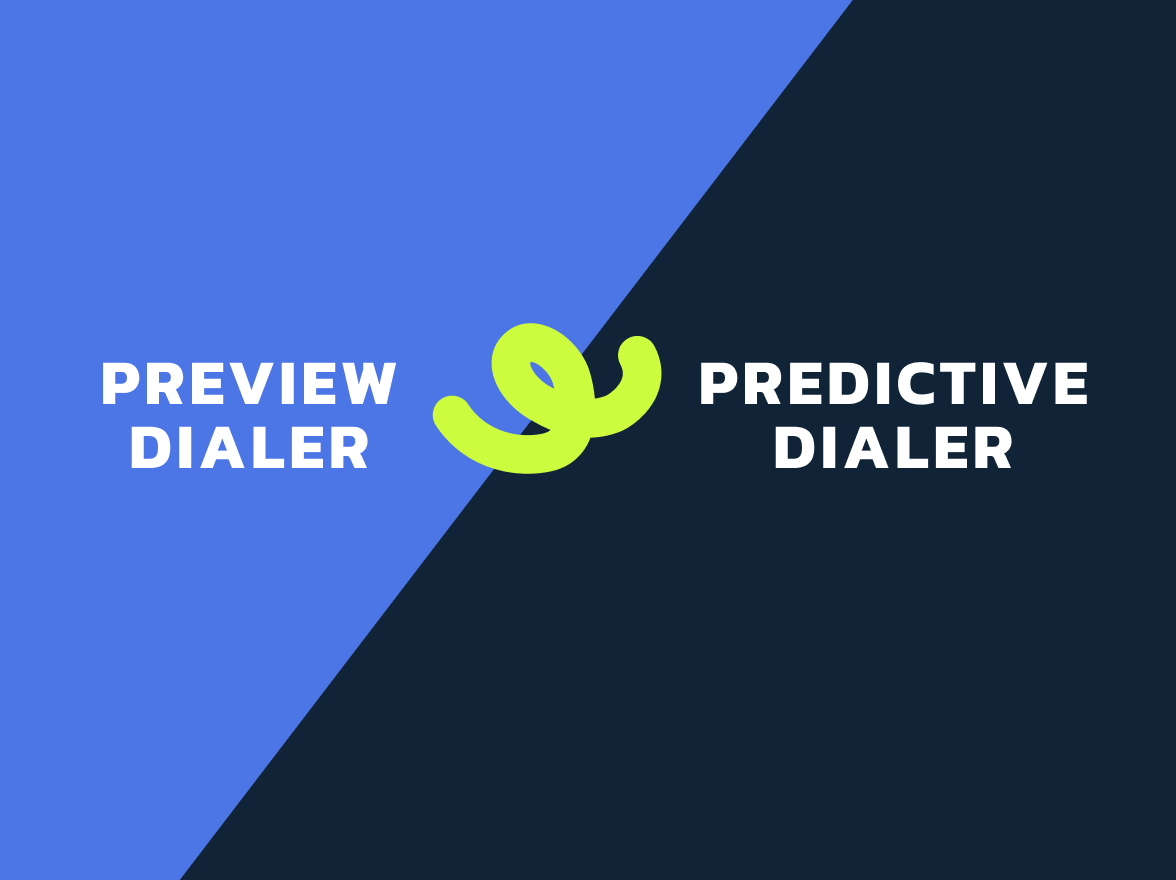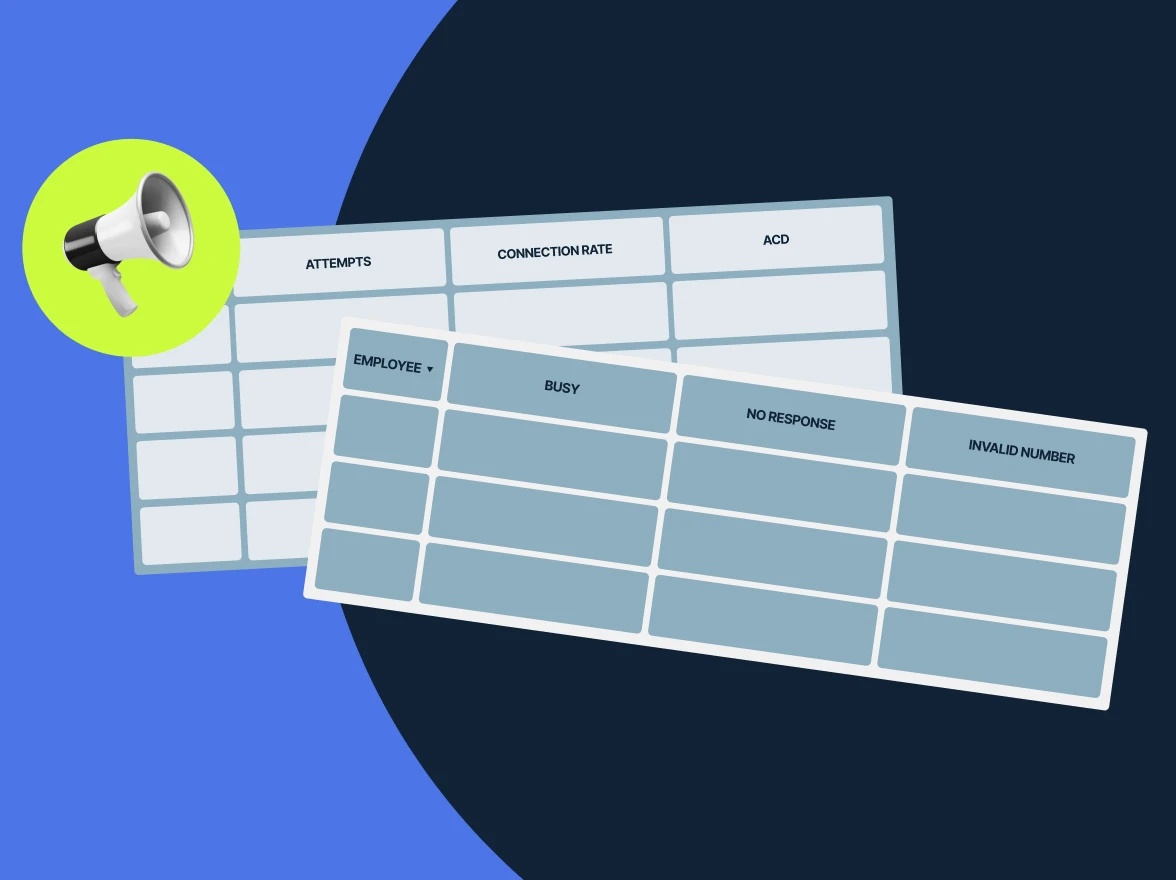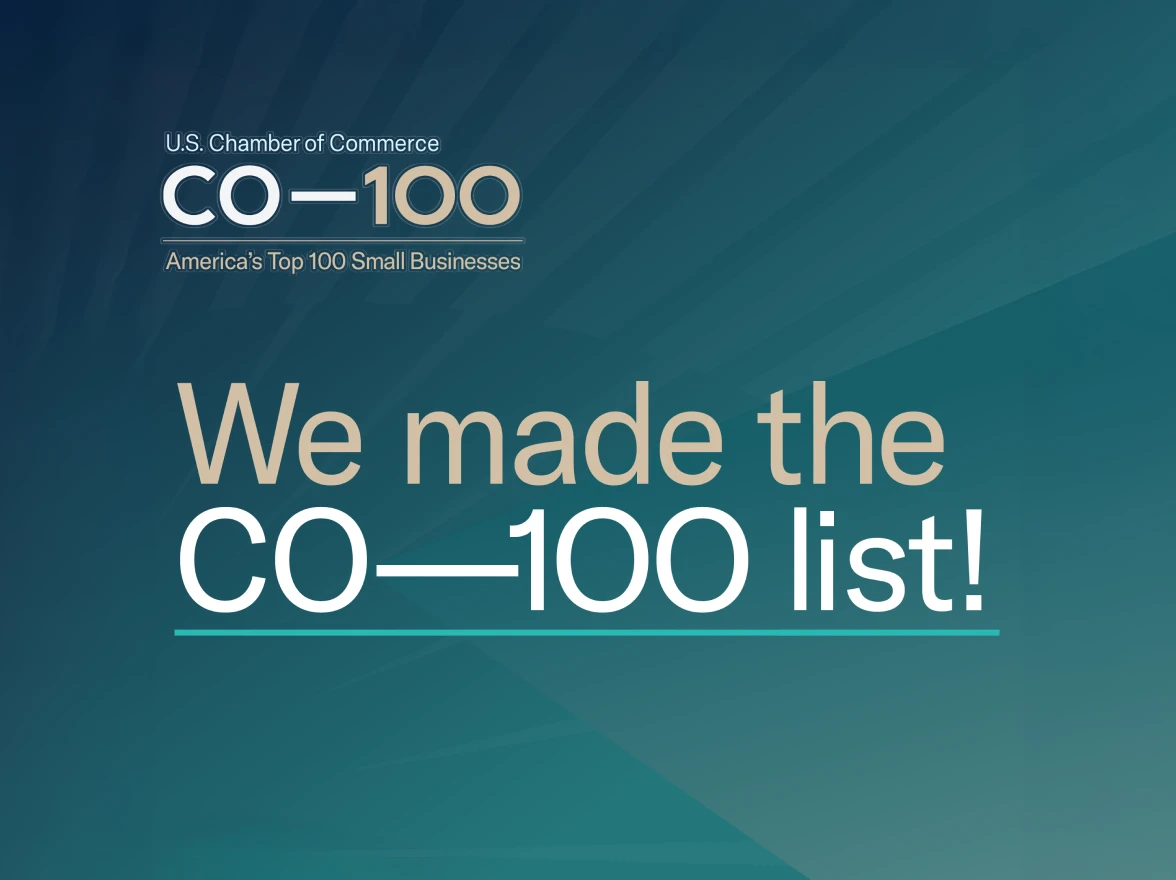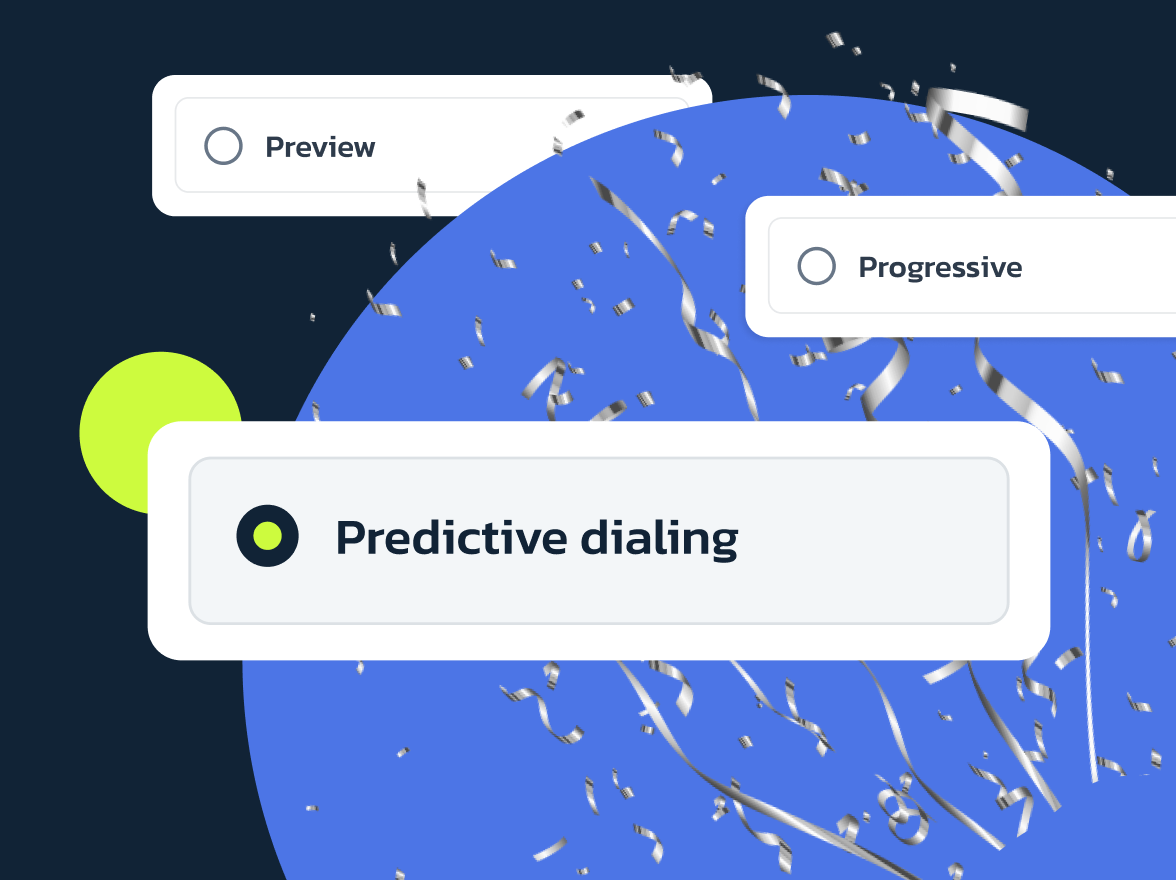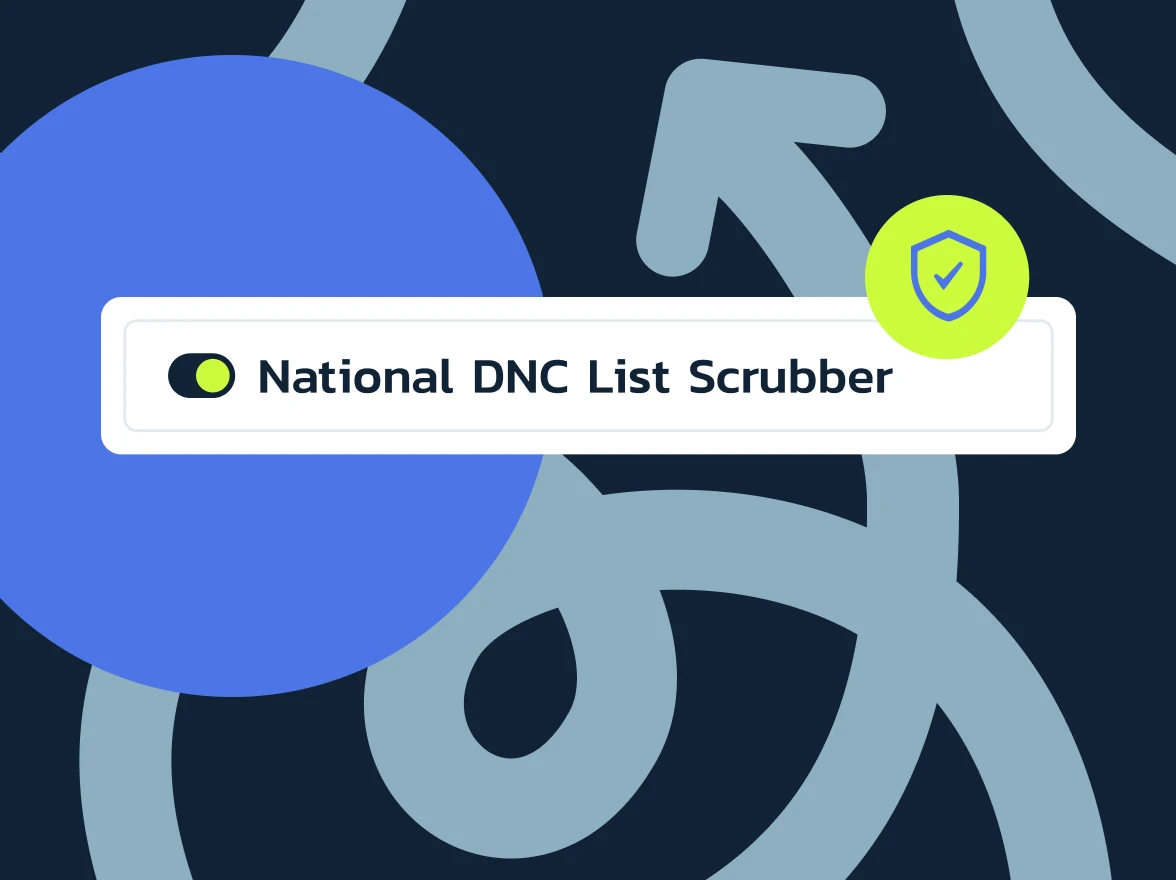When managing a call center, selecting the appropriate tool for making phone calls can significantly influence your team’s effectiveness. Preview dialers and predictive dialers are two common options, each suited to different operational needs. This guide will explore how each type of dialer functions and identify which kinds of businesses would benefit most from using them, helping you make an informed choice to boost your call center’s performance.
What is a preview dialer?
A preview dialer is a call center tool that allows agents to view client information before initiating a phone call. This feature enables agents to target their approach, ensuring a more personalized and informed interaction.
Preview dialer is ideal for scenarios where customer details can significantly impact the conversation’s outcome, a preview dialer improves the strategic preparation of each call, making it especially valuable in sales and customer service environments.
How it works
A preview dialer improves the calling process in a call center with these key steps:
- Preview time: Agents are given a set amount of time to review client information before a call. This allows them to prepare based on past interactions and client data.
- Call initiation: Agents can choose when to start the call, providing control over the timing to ensure readiness and context for a better interaction.
- Call handling: If an agent opts to proceed, they connect with the client, beginning the conversation.
- Wrap-up time: Following the call, agents have time to enter notes, schedule follow-ups, or complete other tasks necessary for accurate client records.
- Call redirection: If an agent decides not to take the call, the dialer redirects it to another available agent to ensure every client is attended to.
These steps are adjustable to suit different campaign needs and outbound call management styles.
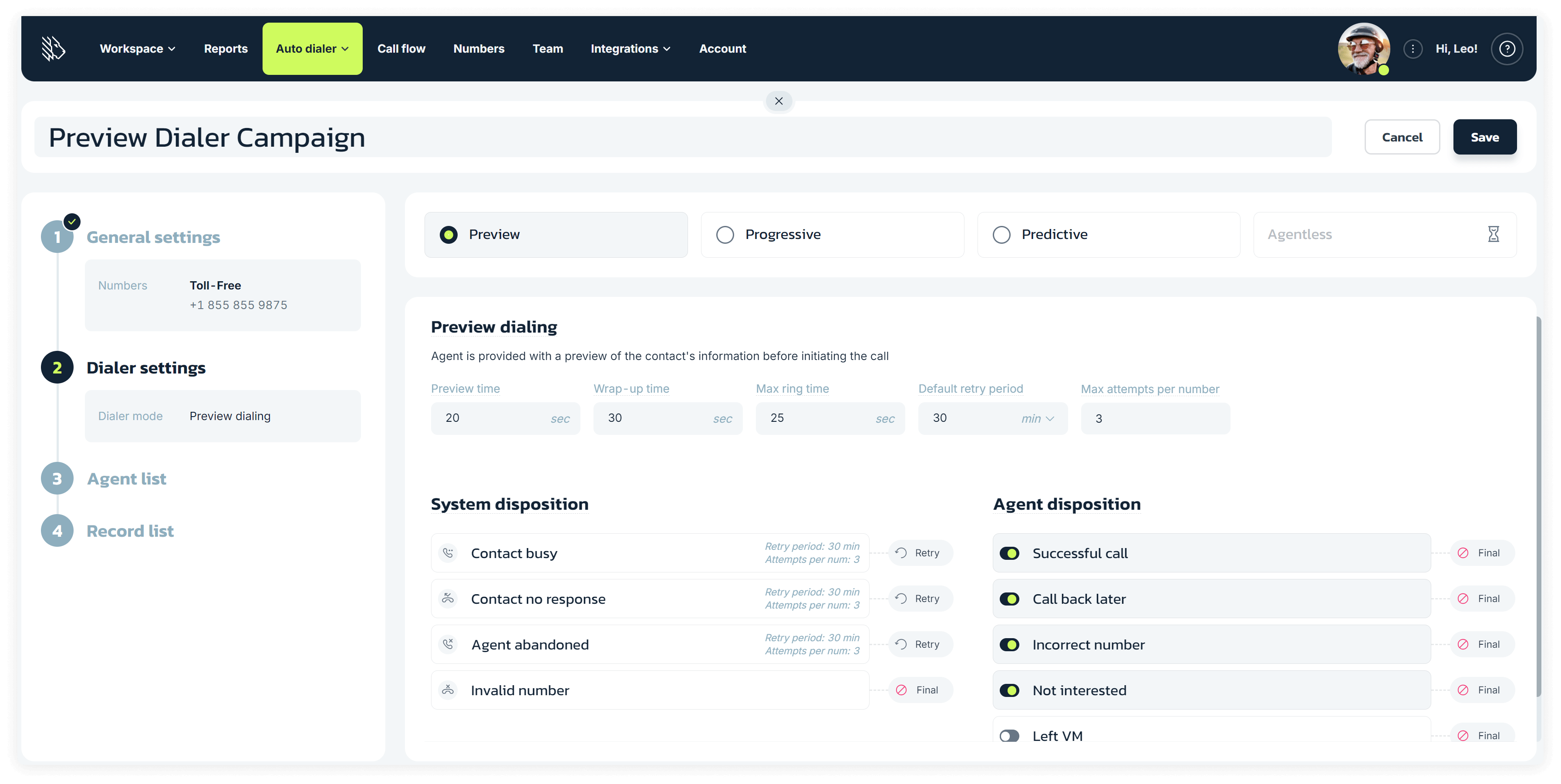
Pros & Cons
| Advantages | Disadvantages |
|---|---|
| Improved customer interaction: Personalizes conversations based on client data, potentially increasing call success | Slower call rate: Each call requires prep time, reducing the number of calls per hour |
| Better agent preparedness: Enhances agent confidence and call quality | Higher operational costs: More time per call may require more agents or longer hours |
| Increased conversion rates: Targeted conversations can lead to higher customer satisfaction and conversions | Potential information overload: Agents might feel overwhelmed by too much information, complicating interactions |
| Compliance with regulations: Ensures compliance by allowing verification of DNC lists and other compliance factors before calling | Dependence on data quality: The effectiveness relies heavily on the accuracy and completeness of the customer data |
| Reduced call rejection: Pre-call information can help decrease the likelihood of call rejection | Requires extensive training: Agents need thorough training to effectively use all available data and features |
Who will benefit from using a preview dialer?
Companies that prioritize high-quality customer interaction find great value in preview dialers, particularly in sectors where detailed client knowledge significantly enhances the efficacy of calls.
It is ideally suited for industries where personalized communication and extensive client history are critical.
Industries that can benefit from a preview dialer include:
- Financial services: Can adjust communications with insights from clients’ financial histories.
- Healthcare: Prepare for patient interactions with access to health records.
- Real estate: Equip agents with property details and client interests for informed discussions.
- Legal services: Enable law firms to review case histories before client calls.
- High-end retail: Provide personalized shopping experiences based on previous purchases and preferences.
MightyCall’s preview dialer
If your business requires personalized customer interactions and values agent preparation before calls, MightyCall’s preview dialer might be the right choice. Designed to bring enterprise-level functionality to small and medium-sized businesses, this tool offers several key features:
- Enterprise-level technology adapted for SMBs: Provides advanced call center functions suitable for smaller teams.
- User-friendly interface: The intuitive design makes it easy for agents to navigate and use the system.
- Flexible settings: Customize key parameters to fit the specific needs of your campaigns.
- High-availability seamless redundancy infrastructure: Ensures zero downtime, high reliability, and sound quality.
- National DNC integration: Helps ensure compliance with a native national Do Not Call registry integration.
By integrating MightyCall’s preview dialer, your team can prepare thoroughly for each call, leading to more meaningful customer interactions and stronger relationships.
What is a predictive dialer?
A predictive dialer is a dialer mode used in call centers to automate and optimize the process of making large volumes of outbound calls. This technology is designed to dial multiple numbers simultaneously, using algorithms to predict when agents will be available and connecting them only to calls that are answered by people.
This method significantly reduces idle time for agents, increasing the overall success of call operations. Ideal for larger call centers with at least 5 agents handling high volumes of outbound calls, a predictive dialer increases agent talk time and productivity, ensuring that they spend more time engaging with potential customers rather than waiting for calls to connect.
How it works
Understanding the predictive dialer algorithm and its functionality involves a clear look at the key steps in the process:
- Multiple contacts: The dialer initiates calls to several contacts simultaneously to ensure a high volume of ongoing calls.
- Connection upon answer: When a contact answers, the system promptly connects them to an available agent.
- Smart algorithms: MightyCall’s predictive dialer uses algorithms to:
a. Predict the next available agent, and
b. Analyze campaign metrics like engagement rates and the number of abandoned calls.
- Recommended abandon rate: MightyCall recommends maintaining an abandon rate of no more than 3% to comply with regulations. This helps balance operational performance with legal compliance.
- Minimal wait time: These algorithms ensure minimal waiting time for the contact, as an agent is likely available by the time the contact picks up.
- Handling non-responses: If a contact doesn’t answer or a voicemail is reached, the system moves on to the next contact, maintaining agent engagement with live contacts.
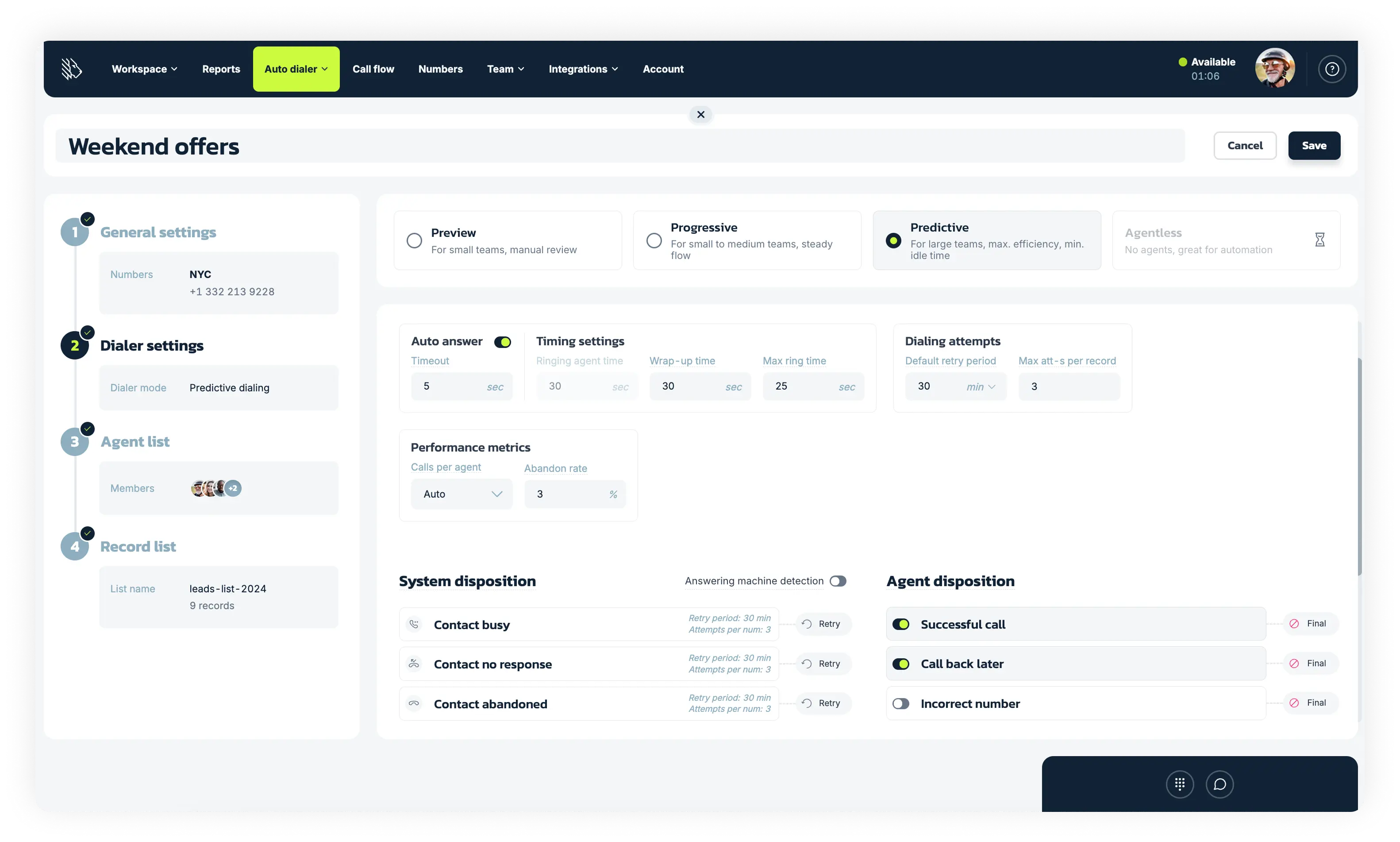
Pros & Cons
| Advantages | Disadvantages |
|---|---|
| Increased call success rates: Maximizes live connections by dialing multiple numbers simultaneously | Potential customer annoyance: Risk of calls being dropped if no agent is available immediately |
| Higher agent productivity: Reduces idle time by connecting agents only to answered calls | Dependence on algorithm accuracy: Results can vary if predictions about agent availability are inaccurate |
| Optimized resource use: Ensures that agents spend more time talking rather than waiting | Regulatory compliance risks: Potential for higher abandon rates, which could lead to fines if not managed properly |
| Scalability: Ideal for operations that need to manage large volumes of calls | Technical complexity: Requires sophisticated setup and ongoing management to function optimally |
| Data-driven operations: Allows for detailed analysis of call outcomes and agent performance | Loss of personal touch: Less opportunity for agents to prepare for calls, which can affect customer service quality |
Who will benefit from using a predictive dialer?
A predictive dialer is particularly beneficial for large organizations that handle a significant volume of outbound calls daily and want to increase operational effectiveness. It is suited for situations where rapid contact is prioritized over personalized customer interaction.
Industries well-suited for a predictive dialer include:
- Telemarketing: Drives high-volume sales calls and promotions.
- Debt collection: Increases the rate of successful contact with debtors.
- Market research: Facilitates large-scale survey efforts.
- Customer service follow-ups: Manages high volumes of follow-up calls efficiently.
- Political campaigns: Enables extensive voter outreach efforts.
MightyCall’s predictive dialer
MightyCall offers a predictive dialer designed to bring enterprise-level call center functions to small and medium-sized businesses. Key features include:
- Enterprise-level technology adapted for SMBs: Provides advanced call center functions suitable for smaller operations.
- Intuitive interface: Easy for agents to navigate, reducing the need for extensive training.
- Flexible settings: Customize the dialer to meet the specific needs of your campaigns.
- High-availability seamless redundancy infrastructure: Ensures zero downtime and sound quality, which is especially important during peak hours.
- National DNC integration: Incorporates a native integration with the national Do Not Call registry to help you comply with regulations.
- Advanced predictive dialing algorithm: Works to minimize wait times and reduce abandoned call rates, improving your call center’s performance and customer experience.
- 10-line predictive dialing: Supervisors can manually set how many calls are placed per agent (from 1 to 10), so the speed of each campaign matches the quality of the contact list.
- Auto answer: Set the number of seconds after which campaign calls are answered automatically, keeping the workflow fast and uninterrupted.
- Answering machine detection (AMD): Automatically detects and skips voicemail responses, so agents speak only with real people.
Predictive dialer vs. Preview dialer: Key differences
When choosing between predictive and preview dialers, it’s essential to understand their key differences to determine which will best suit your call center’s needs. Below is an overview of the main distinctions, presented in a comparative table for clarity. Each difference will be explored in more detail following the table to provide a good understanding of how each dialer operates and which scenarios they are best suited for.
| Feature | Predictive Dialer | Preview Dialer |
|---|---|---|
| Call automation | Fully automated dialing | Semi-automated; agents initiate calls |
| Agent interaction | Minimal before call; focuses on efficiency | High; agents review information before calling |
| Operational speed | High; multiple calls dialed simultaneously | Lower; individual call setup |
| Target use case | High-volume, less need for call personalization | Lower volume, high personalization needed |
| Ideal business size | Call centers with 5+agents | Smaller teams or specialized scenarios |
| Compliance management | Higher risk of compliance issues; manages abandon rate | Lower risk; agents control call initiation |
| Customer interaction | Less personal; limited agent preparation | More personal; detailed preparation possible |
Call automation
The predictive dialer operates on a fully automated system that dials multiple numbers simultaneously without requiring agent intervention until a call is connected. This setup is designed to maximize calling success by reducing idle time between conversations. In contrast, the preview dialer provides agents with information about the call beforehand, allowing them to manually initiate the call once they feel prepared. This process gives agents more control but is less efficient in terms of call volume.
Agent interaction
In predictive dialing systems, agents have minimal interaction with call information before the call is made, as the system prioritizes speed. Preview dialers, however, offer agents the opportunity to review detailed customer information before making the call, leading to more informed and personalized interactions.
Operational speed
Predictive dialers are optimized for speed, making them ideal for high-volume call environments where efficiency is paramount. They are capable of handling a large number of calls per hour by automatically connecting agents to live answers. Preview dialers are slower in operation as they allow agents to take time to review client information and manually dial each number, which reduces overall call volume per hour but increases the quality of each interaction.
Target use case
Predictive dialers are best suited for scenarios where high call volumes and less need for personalization are the norm, such as in telemarketing and debt collection. Preview dialers are more appropriate for use cases requiring detailed customer knowledge and personalized service, such as in high-end retail sales or specialized customer support.
Ideal business size
Large call centers with a significant number of agents will benefit most from the efficiency of predictive dialers. Smaller teams or businesses that require detailed, personalized customer interactions will find preview dialers more beneficial due to the control and preparation time they offer before each call.
Compliance management
Predictive dialers may pose a higher risk for compliance issues, particularly with regulations regarding call abandonment and the frequency of contact. They need sophisticated settings to manage the abandon rate effectively. Preview dialers offer a lower compliance risk as agents manually initiate each call, making it easier to adhere to regulations.
Customer interaction
Predictive dialers generally provide a less personalized interaction as they focus on maximizing operational efficiency. Preview dialers allow for more personalized customer service, as agents can prepare specifically for each call based on the information provided beforehand, leading to potentially higher customer satisfaction.
Understanding these differences will help you select the right dialer type for your organization, ensuring that your call center operations are aligned with your business objectives and customer service goals. If you’re looking to implement a dialing system that matches your specific needs, consider exploring our services for tailored solutions.
Use cases
Below, we explore detailed use cases for each type of dialer, featuring hypothetical company examples to illustrate how different industries might benefit from each technology.
Preview dialer
LuxeReal Estate Co. specializes in high-end property sales, where understanding a client’s unique preferences and background is crucial for successful transactions. Here’s how they use a preview dialer:
- Client background review: Before making a call, the agent reviews detailed information about the client’s previous interactions, property preferences, and financial background, all of which are crucial for personalizing the conversation.
- Call planning: The agent uses the information to prepare specific talking points, such as discussing newly available properties that match the client’s style and budget.
- Engagement: The call is manually initiated by the agent when they feel fully prepared, ensuring that the conversation is both relevant and engaging, leading to higher client satisfaction and increased chances of a sale.
In this scenario, the preview dialer’s ability to allow detailed preparation before each call ensures that agents provide a personalized and informed service, aligning perfectly with the needs of a luxury real estate business.
Predictive dialer
QuickConnect Call Center Solutions provides telemarketing services to various businesses, focusing on large-scale campaigns like product promotions or customer surveys. Here’s how they benefit from using a predictive dialer:
- High call volumes: The predictive dialer system automatically dials multiple numbers simultaneously, significantly increasing the number of calls that can be handled in a day.
- Efficiency: By connecting agents only to calls that are answered, the predictive dialer minimizes idle time. This is crucial in a fast-paced environment where efficiency drives profitability.
- Analytics: The dialer also collects data on call outcomes, which helps QuickConnect analyze the effectiveness of different campaigns and adjust strategies accordingly.
In this use case, the predictive dialer’s capability to handle high call volumes efficiently and its analytical features make it an ideal choice for a telemarketing company aiming to maximize outreach and results.
Both dialers have distinct strengths that can be useful depending on a company’s specific needs, scale, and objectives. These examples should provide a clear idea of how each dialer type can be optimally applied to a real-world context.
Preview dialer or predictive dialer: How to choose?
Choosing the right dialer for your call center involves considering several factors that align with your specific business needs. Here’s a checklist to guide you in making an informed decision:
- Call volume requirements: Assess the number of calls your team needs to handle daily. A predictive dialer is better suited for high-volume environments, automating calls to maximize efficiency. In contrast, a preview dialer is ideal for lower call volumes where each interaction benefits from personalized preparation.
- Need for personalization: Consider the level of personalization required in your calls. If detailed customer knowledge and tailored conversations are crucial, a preview dialer is preferable, as it allows agents to review client information before initiating contact. For general inquiries where personalization is less critical, a predictive dialer can streamline the process.
- Agent skill level: Evaluate the expertise and training level of your agents. Predictive dialers require less initial client knowledge, making them suitable for less experienced agents or scenarios where training resources are limited. Preview dialers are better for experienced agents who can utilize detailed customer data effectively.
- Regulatory compliance: Factor in the compliance requirements of your industry. Predictive dialers can pose higher risks with compliance due to automated dialing, potentially leading to higher abandon rates. Preview dialers offer more control, reducing the risk of compliance issues.
- Technical infrastructure: Consider your existing technical infrastructure and the capacity for integrating a new system. Predictive dialers require more sophisticated technology and management, which might necessitate significant setup and maintenance. Preview dialers are generally simpler to implement and maintain.
- Customer satisfaction goals: Reflect on the importance of customer satisfaction in your business model. If enhancing customer experience is a priority, the ability of preview dialers to provide personalized service may be more beneficial. Predictive dialers, while efficient, might not offer the same level of personal touch.
By carefully considering these factors, you can choose a dialer that not only fits your operational strategy but also supports your business goal.
Which is best for your business?
Choosing between a predictive and a preview dialer depends on your business’s specific needs and priorities. If your operations require handling a high volume of calls quickly, a predictive dialer might be the right choice, as it automates the dialing process to keep agents engaged. Conversely, if your focus is on delivering personalized customer interactions where prior knowledge of the client improves the quality of the call, a preview dialer would be more appropriate. Each system offers significant advantages, but their effectiveness largely depends on how well they match your call center’s operational goals and the particular needs of your industry.
MightyCall provides both predictive and preview dialers, equipped with advanced features to accommodate a variety of business requirements. Whether you aim to improve operational speed or customer interaction quality, MightyCall’s solutions are designed to meet your needs. Try and see how MightyCall’s advanced dialing technologies can improve your business operations and help you achieve your communication objectives.




